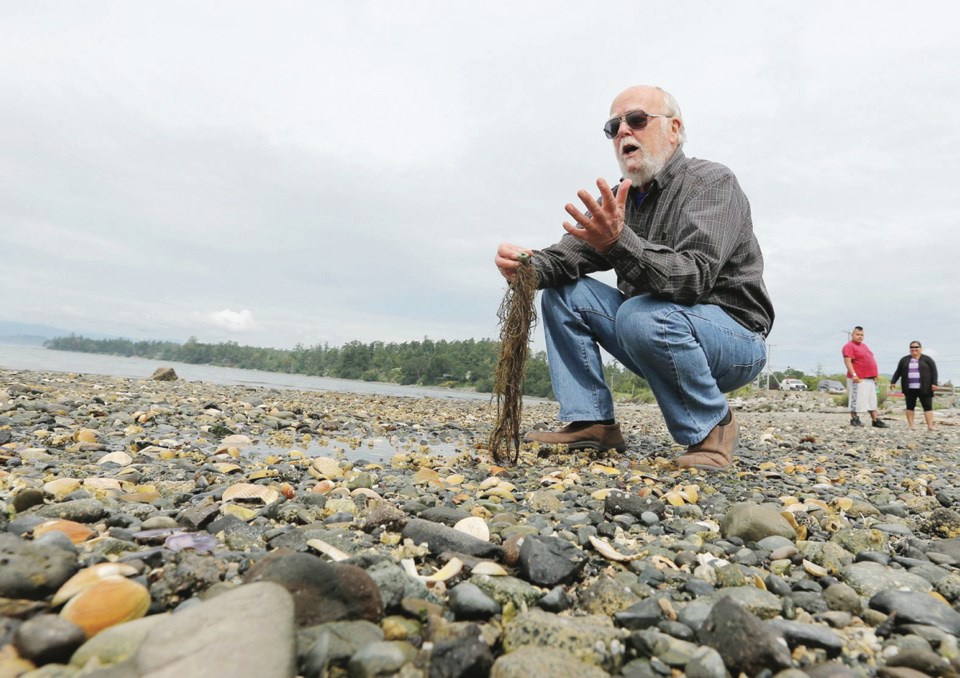A group of North Saanich volunteers is calling on the federal government to take action to reverse declining marine health in Patricia Bay.
For 14 years, members of the Saanich Inlet Protection Society’s Shorekeepers program have collected data showing changes in the intertidal ecosystem — including contamination, habitat loss and decreases in biodiversity.
But the government won’t commit to looking at any more evidence, let alone to doing anything with the information already collected, so the group says it is giving up the project. Volunteers feel their work is going to waste.
“We’re all burnt out over this,” said Denis Coupland, the program chairman. “If this is supposed to be a scientific study, you need to do scientific analysis.”
Shorekeepers have anecdotal evidence of threatened environments, Coupland said.
For example, there is heavy bacteria growth and potential E. coli contamination in TenTen Creek, one of 10 sites monitored by the group. The creek collects runoff from nearby airport and agricultural lands, and increased sediment is smothering butter and horse clams. Meanwhile, sea lettuce covers large areas of beach and blocks the growth of other plants and algae.
But Coupland believes data analysis, which would help identify the root causes of those changes, is the next step toward repairing the environment.
While the Department of Fisheries and Oceans published a 10-year review in 2011, it did not identify those root causes nor recommend ways to stop further declines, Coupland said.
A department spokesman said no future analysis is planned.
“Any analysis of data collected in recent years will depend on program priorities and resources,” said Bruce Reid, regional manager of the oceans program, in an email.
In the face of significant cuts to the DFO under the Harper government, volunteers fear the federal government won’t have the capacity to act.
This year, the federal Conservatives announced $100 million in budget cuts over three years, which followed a one-third reduction in habitat-management staff in B.C. and across Canada in 2012.
The Shorekeepers program was launched by the DFO in 1999 as a community-based stewardship project that relied on local non-professionals to collect data on intertidal ecosystems. Its purpose was “to produce data of sufficient quantity and quality for use by resource managers, environmental biologists and marine researchers who are monitoring and assessing long-term changes in marine communities,” according to the Shorekeepers’ Guidebook, released by the DFO.
The Saanich Inlet Protection Society took over the local branch of the program in 2004, when the DFO announced it would no longer be able to provide staff assistance.
Coupland said part of the agreement was that the DFO would continue data analysis. But almost 10 years later, Reid said the government is still considering the deal.
“Fisheries and Oceans Canada is taking this request into consideration,” he wrote.
The DFO continues to support the group’s activities by training small groups like the Saanich Inlet Protection Society, he said.



